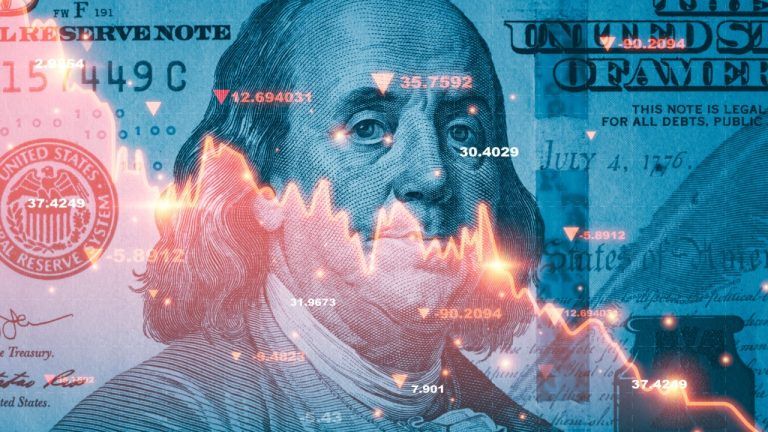Bitcoin price continues to sink, and when it isn’t falling its barely able to move sideways, with “up only” the one direction the cryptocurrency won’t go.
Whether or not the crypto market is headed toward another bear market or not is debatable for now, but technical analysis suggests that when the peak of this cycle arrives, it could bring with it the worst bear market in the history of cryptocurrency.
Analyzing The Secular Bitcoin Bull Run
A secular market& is defined as “a market that is driven by forces that could be in place for many years, causing the price of a particular investment or asset class to rise or fall over a long period.”
“In a secular bull market, positive conditions such as low-interest rates and strong corporate earnings push stock prices higher,” an except in Investopedia reads.
Since the birth of cryptocurrency, Bitcoin has only known a bull market. The technology was born during The Great Recession right as quantitative easing began. The stock market has mainly experienced upside since, and Bitcoin price itself has risen from $0 to $65,000 at the local all-time high.

The bull trend has never once ended on this timeframe | Source: BLX on TradingView.com
Even technical indicators, such as the Average Directional Index suggest that the leading cryptocurrency by market hasn’t truly seen a bear market, despite what past drawdowns might feel like to those that lived them. But trends are only over when the ADX reads under 20 &- or the dashed line above.
Related Reading | Bitcoin Ready For Display Of Strength, But Which Direction Will It Break
The tool also shows the strength of bulls (in green) diminishing while bears (in red) are getting stronger with each major wave up. But that’s still not the signal that suggests a much worse crash when the next cycle ends.
Why The Next Crypto Bear Market Could Be The Worst Yet
Cryptocurrencies are a speculative asset class, first born with Bitcoin. No one truly knows how’s to assign a value to the asset, and thus price action can be more volatile. Because speculative assets are driven more so by investor sentiment and emotion, it responds especially well to certain types of technical analysis, such as Elliott Wave Theory.
Elliott Wave Theory is both simple yet complex, and is based on the idea that markets move based on impulse driven waves. These waves and their potential paths and outcomes can be predicted with some degree of accuracy, so long as certain characteristics and conditions are present.
According to Thomas Bulkowski, the ending diagonal “is a special type of motive wave that occurs primarily in the wave 5 position when price has moved too far and too fast.”

Is Bitcoin forming an ending diagonal? | Source: BLX on TradingView.com
Bulkowski calls this a form of “rising or falling consolidation” and says that “in all cases, the ending diagonal terminates the move of larger patterns.” The ending diagonal is the result of an extended fifth wave which has a set of five impulse waves within the ascending wedge-like shape.
Related Reading | Bitcoin Trend Strength Indicator Suggests Bull Run Isn’t Yet Over
When it finally breaks down, price action could correct all the way back down to where the pattern began to form, which would be more than $1,000 &- but lower than the $3,000 bear market low. If Bitcoin truly is to make it to hundreds of thousands of dollars per coin, and the ending diagonal pattern is accurate, things could get a lot more volatile than anyone would ever expect.
Follow @TonySpilotro on Twitter or via the TonyTrades Telegram. Content is& educational and should not be& considered investment advice.
Featured image from iStockPhoto, Charts from TradingView.com

You can get bonuses upto $100 FREE BONUS when you:
💰 Install these recommended apps:
💲 SocialGood - 100% Crypto Back on Everyday Shopping
💲 xPortal - The DeFi For The Next Billion
💲 CryptoTab Browser - Lightweight, fast, and ready to mine!
💰 Register on these recommended exchanges:
🟡 Binance🟡 Bitfinex🟡 Bitmart🟡 Bittrex🟡 Bitget
🟡 CoinEx🟡 Crypto.com🟡 Gate.io🟡 Huobi🟡 Kucoin.




















Comments